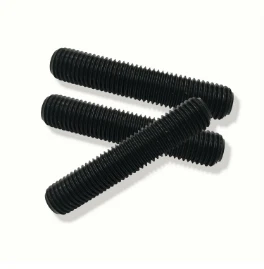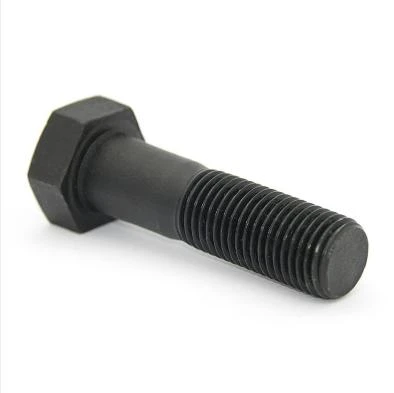screws
જાન્યુઆરી . 09, 2025 10:56 Back to list
screws
Screws are often overlooked in the realm of construction and manufacturing, yet they play a pivotal role in the assembly and durability of countless products. Their seemingly simple design belies the complexity and innovation that goes into producing these essential fasteners. In this article, we'll explore the world of screws, offering insights derived from decades of combined expertise in the industry to underscore their importance and influence in various applications.
Environmental considerations are increasingly influencing screw manufacturing and selection. The push towards sustainability has prompted innovations in screw coatings and finishes, designed to extend the lifespan of the fastener and its host material. Advanced coatings, such as zinc plating or black oxide, not only enhance corrosion resistance but also reduce friction during installation, minimizing energy consumption and tool wear. Professionals committed to sustainability prioritize these details, ensuring not only the integrity of the project but also its environmental footprint. In industries where precision and reliability are non-negotiable, screws undergo rigorous testing and quality control. This involves checking dimensions with micrometers, assessing tensile strength, and subjecting screws to environmental stress tests. Such thorough scrutiny guarantees that each screw performs as expected, maintaining the standards required by industries such as aerospace, medical devices, and construction engineering, where failure is simply not an option. Screws are more than mere components; they are the backbone of countless innovations. By understanding the intricate details of materials, thread and head designs, and environmental impacts, we can make informed choices that enhance the efficiency, longevity, and sustainability of our projects. Trust in a product begins with its smallest parts, and in the world of fasteners, the screw holds unmatched authority. Embracing this expertise and commitment to quality will ensure that every project, whether simple or complex, stands the test of time.


Environmental considerations are increasingly influencing screw manufacturing and selection. The push towards sustainability has prompted innovations in screw coatings and finishes, designed to extend the lifespan of the fastener and its host material. Advanced coatings, such as zinc plating or black oxide, not only enhance corrosion resistance but also reduce friction during installation, minimizing energy consumption and tool wear. Professionals committed to sustainability prioritize these details, ensuring not only the integrity of the project but also its environmental footprint. In industries where precision and reliability are non-negotiable, screws undergo rigorous testing and quality control. This involves checking dimensions with micrometers, assessing tensile strength, and subjecting screws to environmental stress tests. Such thorough scrutiny guarantees that each screw performs as expected, maintaining the standards required by industries such as aerospace, medical devices, and construction engineering, where failure is simply not an option. Screws are more than mere components; they are the backbone of countless innovations. By understanding the intricate details of materials, thread and head designs, and environmental impacts, we can make informed choices that enhance the efficiency, longevity, and sustainability of our projects. Trust in a product begins with its smallest parts, and in the world of fasteners, the screw holds unmatched authority. Embracing this expertise and commitment to quality will ensure that every project, whether simple or complex, stands the test of time.
Latest news
-
Reliable Axle Nuts Supplier | High-Quality Automotive Parts
NewsAug.19,2025
-
Premium Wire Bolts Suppliers | Durable & Reliable Fasteners
NewsAug.18,2025
-
Leading Metric Wood Screw Companies & Manufacturers
NewsAug.17,2025
-
Top Wire Bolts Suppliers - Quality & Durable Fasteners
NewsAug.15,2025
-
Trusted Wire Bolts Company | Quality Fasteners Supplier
NewsAug.14,2025
-
Reliable Wire Bolts Suppliers & Manufacturers for Global Needs
NewsAug.13,2025
